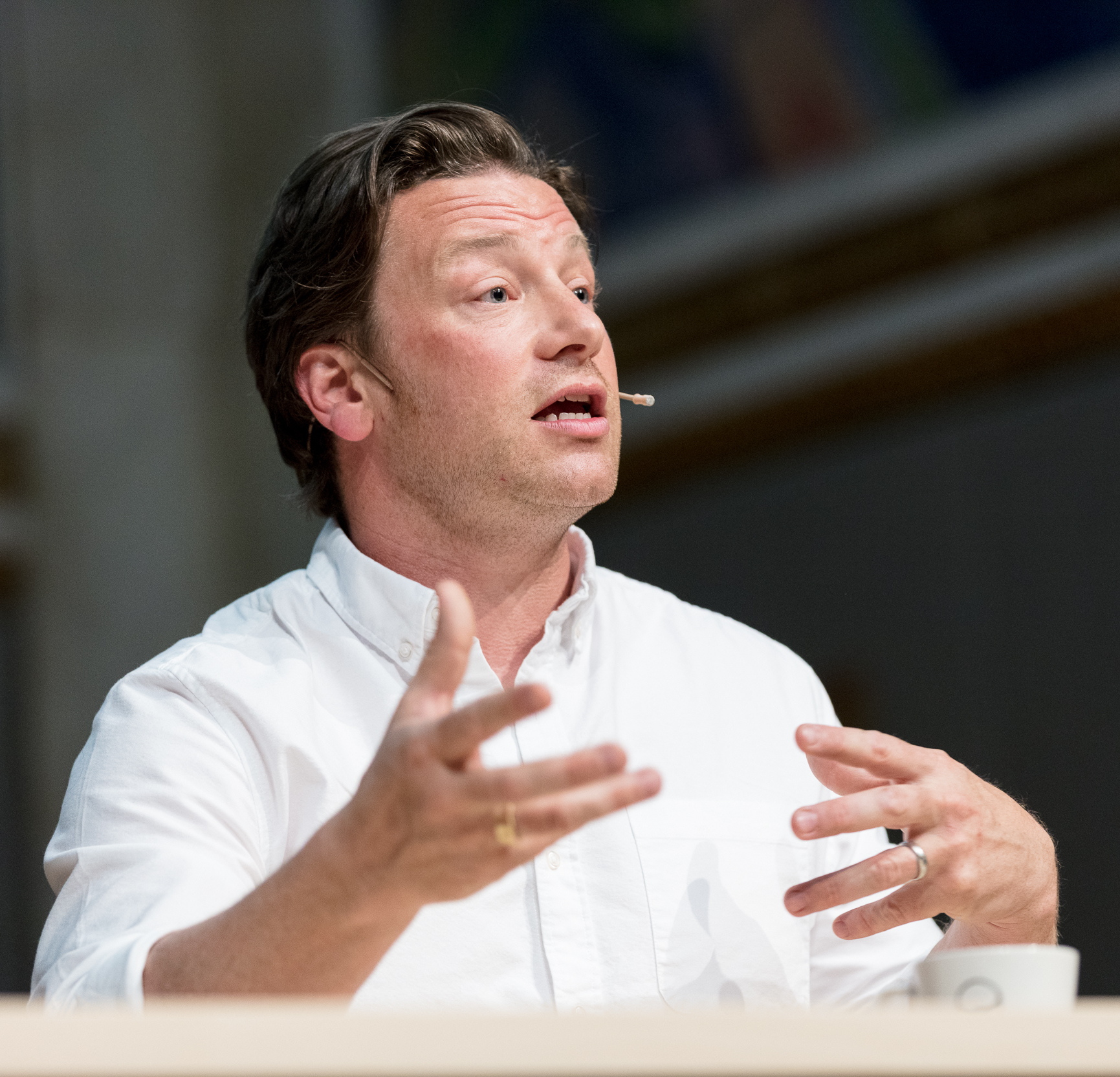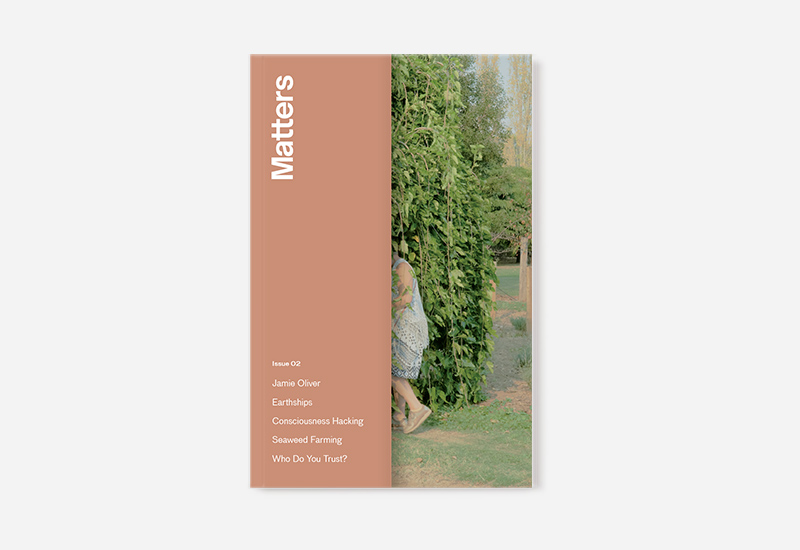Jamie Oliver on Trust
Jamie Oliver in conversation with Dr Sandro Demaio
Photos supplied by EAT Foundation
The full conversation is featured in Issue 2. Order your copy HERE.
At this year’s Business for Peace summit in Oslo, Norway, Jamie Oliver, chef and founder of Jamie’s Food Revolution was joined by Dr Alessandro (Sandro) Demaio, CEO of EAT Foundation, for a conversation about childhood obesity, business and the importance of trust. The full conversation can be found in Issue 2.
Dr Sandro Demaio: So Jamie, let’s talk about trust. We’ve already heard you have it in spades but we live in a time where it’s really an eroding source in many settings: between the private sector and the public, between parents and government, between the media and the public, and between the media and government. Yet, you’re a media spokesperson, celebrity, business owner, father, advocate and one of the most trusted people. What’s the secret ingredient?
Jamie Oliver: Don’t lie.
Good start!
That’s it. Just don’t lie. If you look at my media over the last 15 years you’ll see patterns of people attacking me and not believing me but you’ve just got to keep going. So, I think you just have to be relentless and not lie.
I think it has to be about more than just not lying. I mean, what is it that allows you to have the [level of] trust where you can land in Australia [where] business leaders, the head of the country, a civil society, scientists, everyone trusts you? That’s a huge responsibility.
Yeah, it’s a huge responsibility.
But that’s why you’re able to make years of progress in a one-hour meeting — it’s the decades of work you’ve put in to building that trust.
Yeah, well, my superpower is trust but my weapons are storytelling and filmmaking, documentary-making, writing and now social media.
For those businesses who don’t have the same level of trust from society as you do, what’s the first step (other than not lying) they can do to start to build that trust?
Not lie. Honestly, if your North Star is to tell the truth, whether it’s on labelling or packaging where you know you’ve got products that are screaming about being high in, say, vitamin D and fibre, but you know they’re full of sugar, then I think tackling that, for example, would be a really good start.
But how do you balance that? Because at the end of the day I understand you don’t lie but when you have shareholders you’re responsible to who might throw you out… and what is a white lie and what is a lie? I mean, it’s hard to get.
The concept of caring about what is good, what is good practice is a really heavy burden. The minute you care about stuff you can never leave it. And the minute you get good, the targets move and so to not care is the easiest thing in the world. Diet-related disease is the mother epidemic and it’s also the mother of all business because the food industry is the biggest on the planet and the biggest employer on the planet.
And the biggest climate emitter.
Of course, and so if you care about the planet or kids then you need people in your organisation to see it, to smell it and to give you the truth. In my business we don’t just employ people to go, “Oh, this is nice” — we fight. There’s that tension and you need that kind of balance between social tension, responsibility and the commercial. Fifteen years ago I hated any business that was big but now I know that getting big businesses to be better is the future.
So, that starts with a tough conversation based around honesty?
Based around lots of things. And this is just my opinion, but whether it’s breakthroughs that I’ve had in politics or with CEOs of business it all comes down to ego — just managing ego. And I’m not saying we don’t all have an ego, we do, but when I got Tony Blair [the then prime minister of the UK] to agree to invest nearly £600 million over six years, as well as to protect money to be spent just on nutrition and food education, I didn’t get that because I was scientific. I didn’t get that because I had data or the proof or the truth. But what I did have was a documentary narrative. It pretty much came down to saying: “I’m going to come and see you in a week and you’re going to give me a result to the information I’ve given you and you can be rubbish, you can be okay or you can be robust. That is your legacy.” That’s the only reason I got the cash… it’s true. And I think that what I’ve learned about politics over the years is that the default is to do nothing. Nearly every politician from any country has always said to me, “Make us and we will.” So just think about that: we have to make them and they will.
"Yeah, well, my superpower is trust but my weapons are storytelling and filmmaking, documentary-making, writing and now social media."





